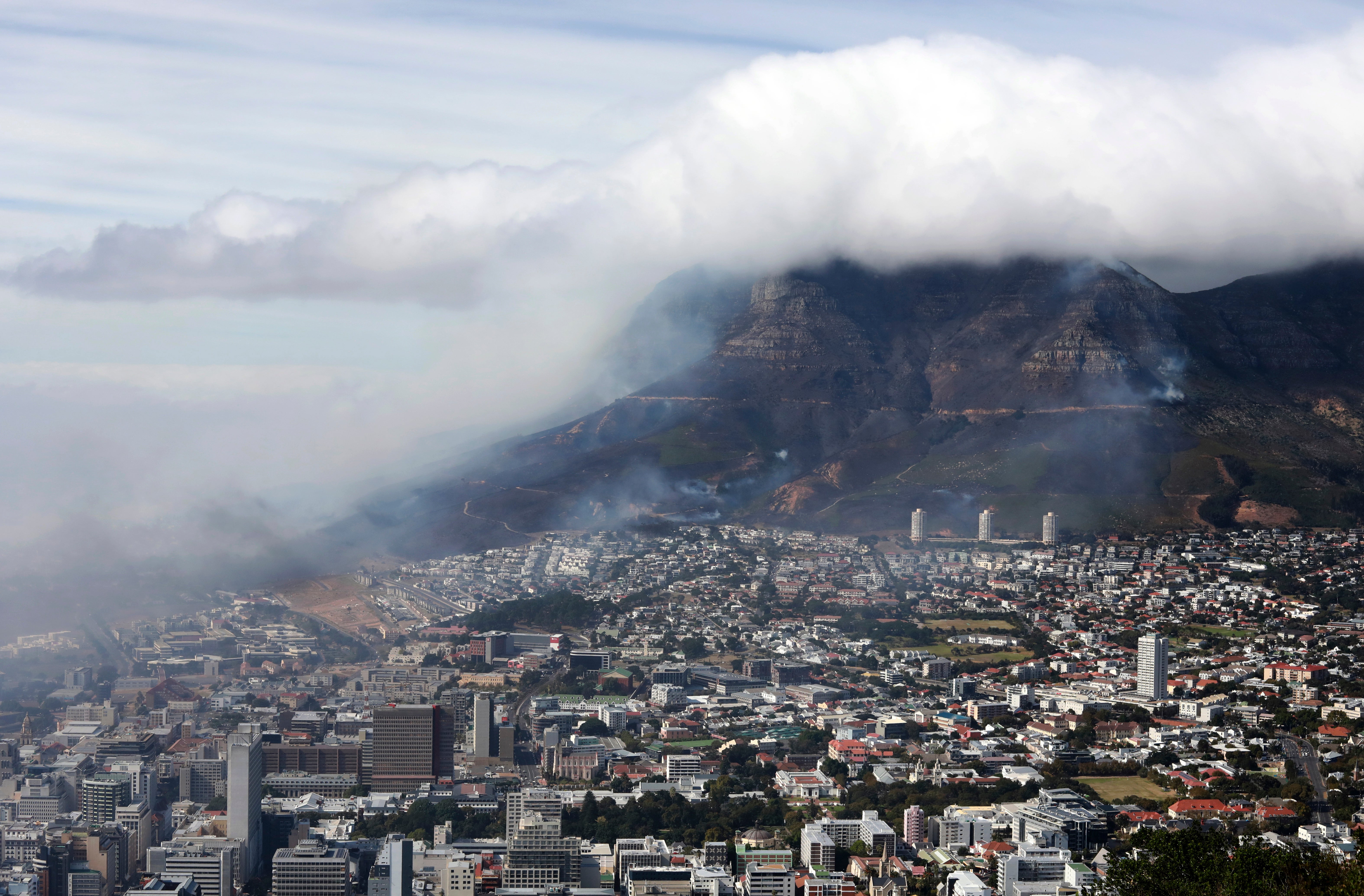Cause of mystery smell that blanketed Cape Town tracked down
Authorities in Cape Town launched an investigation after a foul stench swept over the South African city

Your support helps us to tell the story
From reproductive rights to climate change to Big Tech, The Independent is on the ground when the story is developing. Whether it's investigating the financials of Elon Musk's pro-Trump PAC or producing our latest documentary, 'The A Word', which shines a light on the American women fighting for reproductive rights, we know how important it is to parse out the facts from the messaging.
At such a critical moment in US history, we need reporters on the ground. Your donation allows us to keep sending journalists to speak to both sides of the story.
The Independent is trusted by Americans across the entire political spectrum. And unlike many other quality news outlets, we choose not to lock Americans out of our reporting and analysis with paywalls. We believe quality journalism should be available to everyone, paid for by those who can afford it.
Your support makes all the difference.Authorities in the capital of South Africa have launched an investigation after a foul stench swept over the city.
Cape Town officials were originally puzzled by the smell and inspected sewage facilities for leaks and an environmental health team was activated.
The source of the smell was finally discovered: a ship docked in the harbor carrying 19,000 live cattle from Brazil to Iraq.
Zahid Badroodien, the official in the mayor's office in charge of water and sanitation, wrote on the social media site X, formerly Twitter, that investigators had confirmed that the source of the “sewage smell blanketing parts of the city” was the cattle ship.
He wrote that the ship was due to depart soon, likely to the relief of residents who had an unpleasant start to their working week.
The ship also has become a target of serious criticism by animal welfare groups.
The National Council of the Society for the Prevention of Cruelty to Animals sent a veterinary consultant onboard the ship to assess the welfare of the animals, it said. The SPCA's council said it was strongly opposed to the export of live animals by sea.
“This smell is indicative of the awful conditions the animals endure, having already spent 2½ weeks onboard, with a build-up of feces and ammonia,” the SPCA said in a statement. “The stench onboard is unimaginable, yet the animals face this every single day.”

The 190-meter long (623 foot) Al Kuwait is a Kuwaiti-flagged livestock vessel, according to the Marine Traffic website. It docked in Cape Town to load feed for the cattle, the SPCA said.
South Africa's Democratic Alliance political party, which governs Cape Town, also condemned the transport of live cattle.
“Live export, as evidenced by this situation, exposes animals to perilous conditions such as dangerous levels of ammonia, rough seas, extreme heat stress, injuries, dirty environments, exhaustion, and even death,” the party said in a statement.
Earlier this month, a ship carrying more than 16,000 cattle and sheep also bound for the Middle East returned to Australia after becoming stranded at sea for nearly a month due to the attacks by Houthi rebels in the Red Sea. That ship also came under scrutiny for cruelty but veterinarians found no significant health and welfare issues among the livestock.